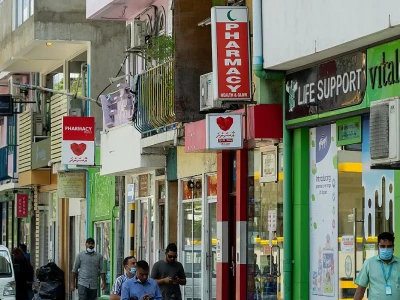
Aasandha chief says co-payment needed to sustain scheme
The number of pharmacies selling medicines under Aasandha should also be limited, Zeeniya said.
By
Ahmed Naif
The national health insurance system, which is now free for every citizen, can only be sustained if it introduces a co-payment from the public for the service, the company said on Tuesday.
Maafannu Central MP Ibrahim Rasheed asked why the service is not being considered as an insurance system when the costs of Aasandha are becoming unaffordable.
Replying to the question, the new Managing Director of Aasandha Fathimath Zeeniya said the company does not have the power to make any changes to the Aasandha scheme. Aasandha is implementing a scheme entrusted to it by the National Social Protection Agency (NSPA), she said.
She said she supports changing Aasandha to a service that charges a co-payment or an annual amount from the people.
“We cannot make any change in the Aasandha scheme unless NSPA asks us to make a change”.
"We also believe that this scheme cannot be sustained without a co-payment. So it [charging something from the public] can be done”.
Zeeniya explained to the committee some of the reasons for the high cost of Aasandha. She said one of the biggest problems is the unrestricted availability of Aasandha from pharmacies and health service providers.
She added:
-
Some clinics apply for permission to become Aasandha centers even before they open
-
Private health care facilities have become funded by Aasandha
In addition, the cost of treatment in some private hospitals and clinics in Maldives is much higher than sending people to foreign hospitals for treatment, she said.
She said packages are being made available to health centers for some operations to reduce the cost of Aasandha. Then prices will be kept at a certain level, she said.
“However, there is little cooperation from private institutions,” she said.
In order to reduce the cost of treatments sought from overseas hospitals, the government is considering grading hospitals to a certain extent and imposing a limit on the amount or co-payments they have to pay for their services, she said.
56% of Aasandha spent on drugs
Zeeniya said 56% of the cost of Aasandha is for medicines. Steps have been taken to reduce the cost, she said. As such, medication can now be withdrawn by entering a code that comes to the phone and that was done to close the doors open to fraud.
In addition, they are considering making it impossible to take medicines again and again using one prescription before the prescribed period expires.
She said 11 expensive drugs are being brought through bulk procurement to reduce the cost of drugs. The number of pharmacies selling medicines under Aasandha should also be kept within a certain limit, she said.
Related
Related

Aasandha says against bi-annual medical checkup cover

New state firm to study local drug production, minister says

Govt working to expand Aasandha medicine list, says minister

